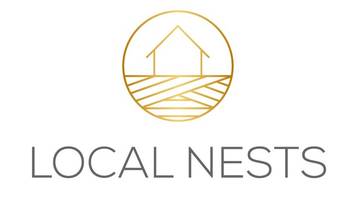Blog > Interest Rates and Home Prices: Which Matters More When Buying a Home?
When it comes to buying a home, there are a lot of factors that go into figuring out if a home is affordable for you. Beyond the asking price, you need to consider property taxes, maintenance costs, the type of loan you get, and the interest rate, for example.
It’s every buyer’s dream to find a low-priced home and lock in a mortgage with a low interest rate, right? In an ideal world, that would be the perfect time to buy! But in reality, that rarely happens. Typically, it’s one or the other: a lower interest rate with a higher-priced home, or a higher interest rate with a lower-priced home.
So which is a better deal for buyers? The short answer is: it depends. To answer that question more fully, let’s take a look at the relationship between interest rates and home prices, and the effect each of them have on home buyers.
How Interest Rates and Home Prices Are Connected
In general, interest rates and home prices have an inverse relationship: when interest rates go up, home prices start to drop; when interest rates go down, home prices start to rise.
Both home selling prices and interest rates affect home buyers. When either one is especially high, buyers are more hesitant to enter the market, and when one or the other is especially low, buyers tend to be more enthusiastic about entering the market.
There are two home buying factors that are directly affected by fluctuating home prices and interest rates:
- Down payment. Because the down payment is typically a percentage of the selling price, the higher home prices are, the higher your down payment will need to be. A 20% down payment is the gold standard, but depending on your bank and the type of loan you’re able to get, you may be able to get by with as little as 3% down.
- Monthly payment. Your monthly mortgage payment is primarily determined by three factors: the home’s selling price, the interest rate, and your down payment. Even if you lock in a low interest rate, your monthly payment will be higher if you don’t have the cash to put down a larger down payment. And even if your home price is low, a high interest rate will increase your monthly payment.
Advantages of Low Interest Rates
Over the past few years, we’ve seen historically low interest rates. And although they’ve been on the rise in the last year, historically speaking, they’re still on the low end. (At their highest, the annual average interest rate in the early 80s was over 15%!)
When interest rates are low, buyers have more purchasing power. In other words, they can afford to buy a higher-priced home. A lower interest rate means less of your monthly payment goes toward interest, and more goes to pay off the principal of the loan. This equates to being able to afford a little bit more house than you would with a higher interest rate.
Advantages of Low Home Prices
One major advantage of buying when home prices are low (even if interest rates are high) is that you can refinance when interest rates go down. With a lower-priced home, you’re able to build equity faster, which will allow you to refinance more easily down the road.
A lower home price also means you also won’t need to bring as much cash to the table in the form of a down payment.
So even if interest rates are higher than you’d like them to be right now, you could still end up with an affordable home that helps you build equity.
Doing the Math: An Example Homebuying Scenario
As an example, which do you think is better: paying $50k over asking price, or paying a mortgage with a 7% interest rate? Consider these two scenarios:
April 2022
Listing price: $400,000
Purchase price: $450,000
Interest rate: 4.5%
Down payment: 20%
Monthly payment: $1,824
Nov 2022
Listing price: $400,000
Purchase price: $350,000
Interest rate: 7%
Down payment: 20%
Monthly payment: $1,863
If you only focus on the interest rate, you may think you’ll have to pay a LOT more with a 7% interest rate vs a 4.5% interest rate, right? But the reality is, it makes for a very small difference in the monthly payment (in this case, $39/month).
Plus, in the second scenario, you paid $50 under asking price, rather than $50 over. This means you saved money on the front end in the form of a smaller down payment, plus you’ll earn equity faster so you’ll have an easier time refinancing when interest rates go down.
Are You Ready To Buy?
Waiting for the “ideal” market isn’t always realistic—after all, no one can predict when (or if) we’ll see a market with both low home prices and low interest rates.
If you aren’t in a rush to buy, you may be able to afford to wait out higher interest rates in the hopes of securing a lower one in the future. But keep in mind that you can’t necessarily count on interest rates dropping by the time you need to buy.
The truth is, the right time to buy for you is based on so many more factors than interest rates and home prices. For example, if the following are true, it may be the right time to buy even if one or both of those factors aren’t ideal:
- You need to move due to relocating for work or sizing up or down for your family’s needs
- You can afford the monthly payment
- You have savings set aside for home repairs, furnishings, and emergencies
- You’ve saved up for a down payment
- The local housing market conditions are suitable (i.e., look at the specific neighborhoods, you’re interested in, rather than only the overall housing market)
In other words, you should buy a home when YOU are ready…rather than waiting for when the market is “right.”
Are you ready to buy? If the time is right for you to make a move, give me a call at 612-227-5537 and let’s find you a home!

